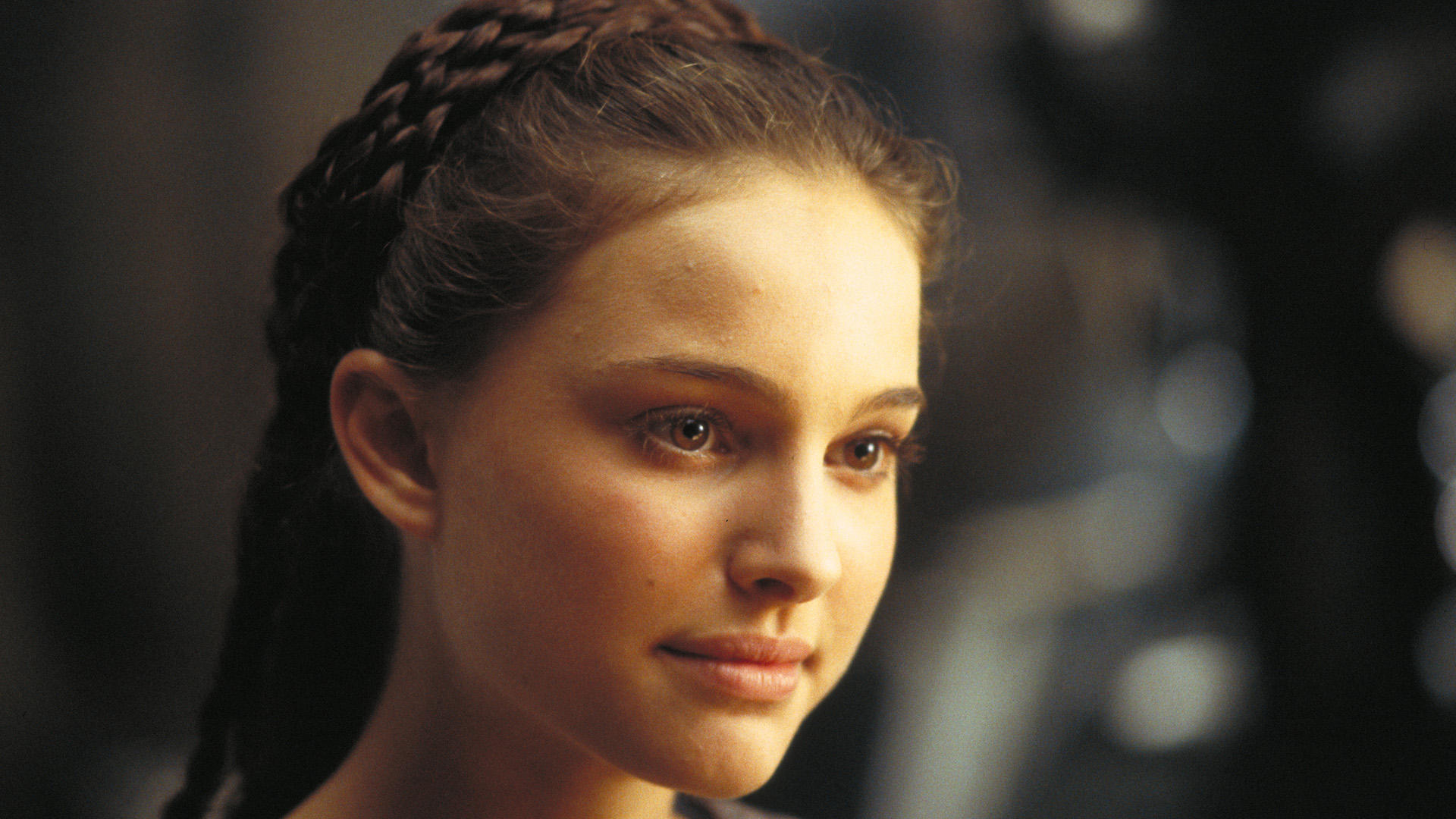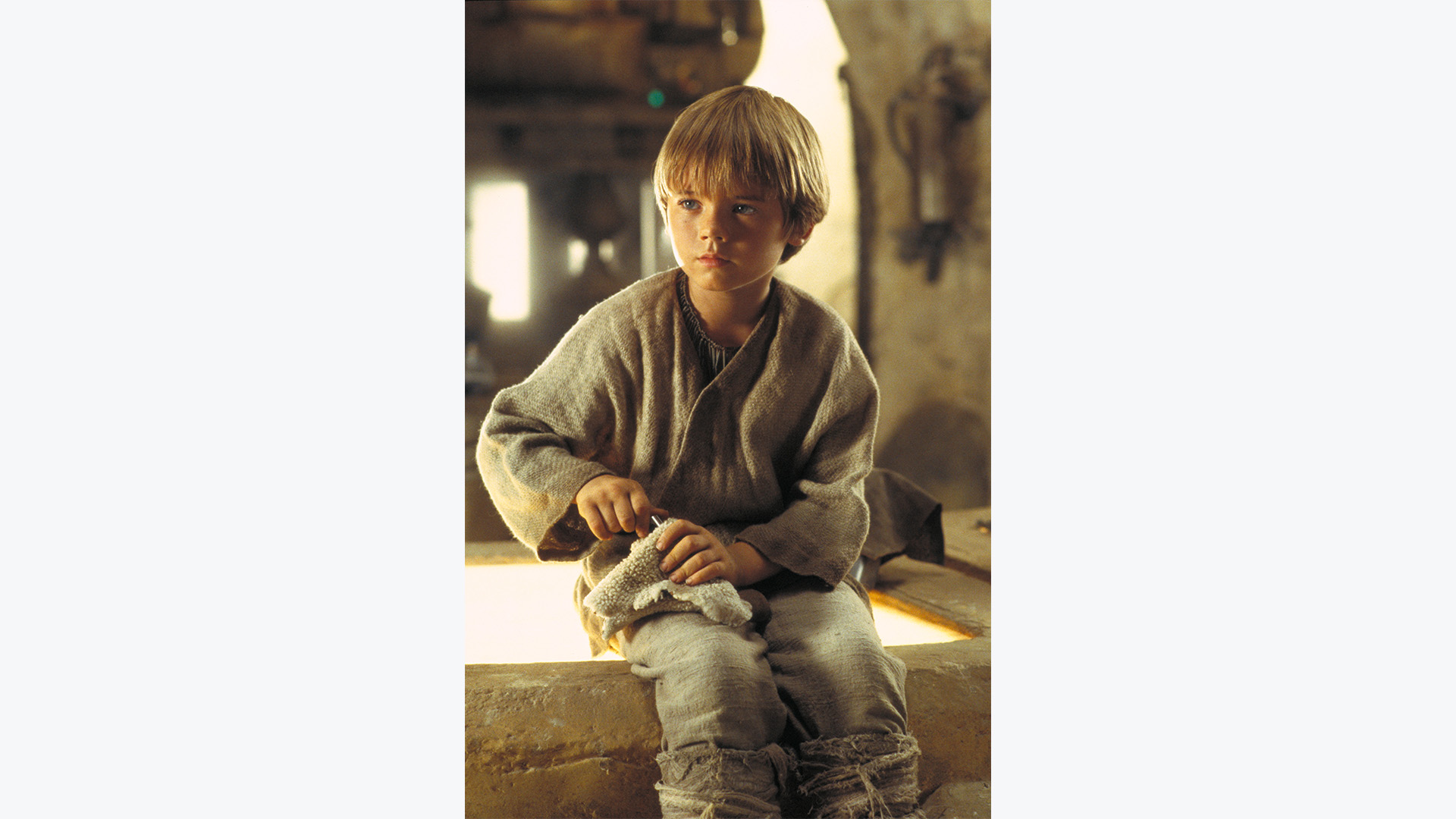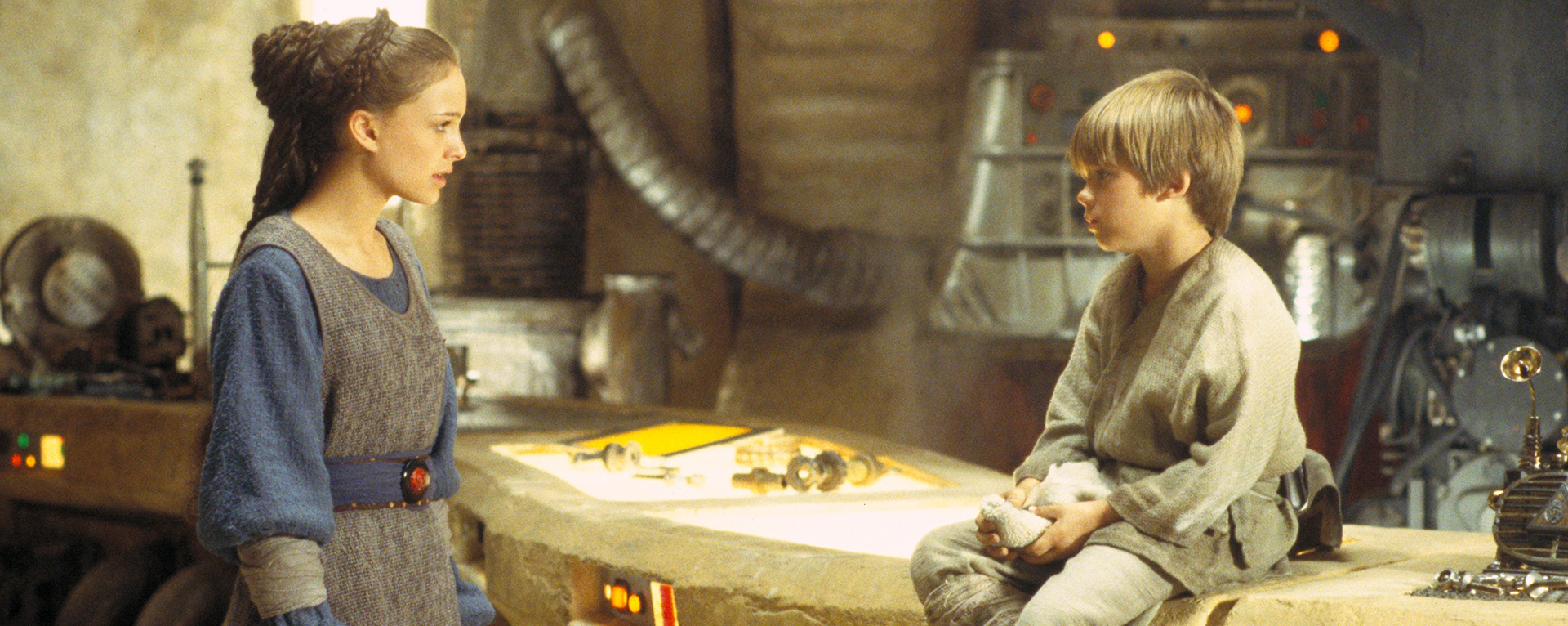Defining Moments: First Impressions
Anakin and Padmé’s first meeting in The Phantom Menace has deep ramifications on the Star Wars saga.
“Defining Moments” is a continuing series exploring key scenes or sequences from Lucasfilm’s many productions. It examines storytelling craft, behind-the-scenes insights, and cultural legacies from each selection. Revisit an old favorite or discover something brand new…
Production: Star Wars: The Phantom Menace (1999)
So much can come from an innocent question. When a teenaged-Padmé Amidala (Natalie Portman) enters an inauspicious junkshop, an even younger boy, Anakin Skywalker (Jake Lloyd), is enraptured to see her. He has little frame of reference for an encounter with someone so beautiful, only fragments of tales about far-off beings that he picks up from those passing through his backwater homeworld. Self-assured and curious, he asks, “Are you an angel?”
Distracted by her mission to save Naboo, Padmé is taken by surprise. Anakin presses the topic. “I’ve heard the deep space pilots talk about them. They’re the most beautiful creatures in the universe. They live on the moons of Iego, I think.” The queen-in-disguise is disarmed by the boy’s charm.
Padmé asks her own questions about his life on Tatooine, and is bewildered to discover that Anakin and his mother are enslaved. When she tries to clarify, he becomes defensive, “I’m a person and my name is Anakin.” Padmé apologizes and explains that “this is a strange place to me.” In the course of their dialogue, the pair form an endearing connection.
In retrospect, this moment from Star Wars: The Phantom Menace (1999) establishes one of the most significant relationships in the Star Wars saga, one that leads to both great tragedy and heroic redemption. Writer and director George Lucas chose the scene to screen test candidates for Anakin Skywalker, a poignant decision considering the delicate subtext imbued within each character.
Anakin’s question betrays his naivete, as well as his idealism. To his young mind, someone as beautiful and spellbinding as Padmé could only be an angelic creature. He’s eager, full of optimism and excitement, but there’s also a sense of preciousness, even covetousness, beneath the surface. It’s something with which Anakin will continue to struggle.
Padmé is not much older, but she is much more experienced, already an accomplished leader. Her own idealistic strain – a pure vision of morality and the rule of law – is quickly challenged by the harshness of life on Tatooine. After struggling to accept that Anakin is enslaved, she questions it again during the later scene at dinner, when Shmi Skywalker (Pernilla August) explains the hard truths. What’s contrary to Anakin’s development is Padmé’s ability to overcome her naivete. The lessons from Tatooine empower her on Coruscant where she refuses to bend to the political corruption of the Senate or the manipulations of Senator Palpatine.
The ripples of Anakin and Padmé’s first meeting can be seen in their reunion a decade later in Star Wars: Attack of the Clones (2002). Padmé still sees the full-grown Jedi as “Ani,” the little boy she knew long ago. Anakin has continued to idealize Padmé’s angelic qualities in his imagination, and foolishly blunders an inappropriate attempt to compliment her beauty. Though Anakin is the headstrong one, Padmé almost dismissively underestimates the young man. She indulges his attention to a degree, a sign of her own conflicted feelings, while Anakin lets his eagerness overtake him, as he does with everything.
From the start, we see a brittle foundation in their relationship, one that ultimately proves its undoing. Yet, there is also hope in the simple truths and delights of Anakin and Padmé’s love. They care for each other deeply, even during their long separation. Anakin sees Padmé as more than a political leader, and tries to encourage her to be her full self. Padmé sees the enduring goodness within Anakin in spite of his tragic failures. That sense of compassion will be inherited by their children, and prove essential to the story’s ultimate outcome.


Lucas O. Seastrom is a writer and historian at Lucasfilm.
—
Lucasfilm | Timeless stories. Innovative storytelling.

